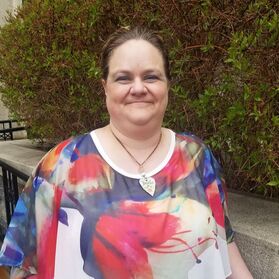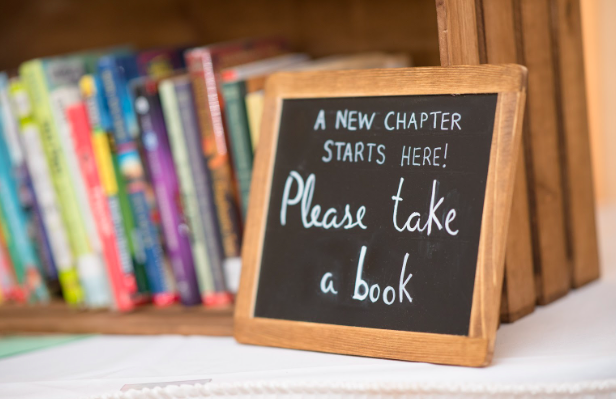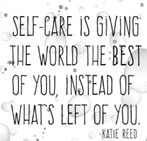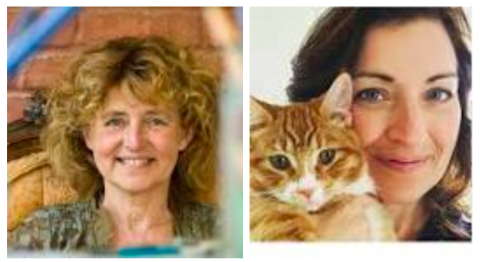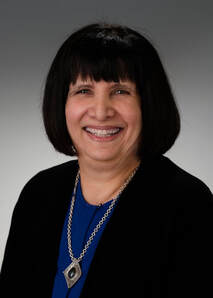About the EditorKim Wrathall is a Kindergarten Teacher from the Calgary Area working in a High Needs school for 18 years. She has a Masters in Educational Research-Interdisciplinary Studies (Design Thinking and Creative Collaboration, Socially Just Schools and Educational Research) with her final paper focusing on Mindful Practice in K-3 Classrooms.
|
Lots to Reflect on, Take on, and Grow From. |
Start where you/they are at |
|
As the year has begun in a flurry and with many areas to both reflect on and push past. There is much to consider to those of us in the education field.
This issue is going to be a reflection of different resources, review of our spring conference and a look ahead to build the journey you wish to have. I hope for you all it provides some solace for your journey, or at the very least some ideas to help get you started. |
As an educator we often look at the big picture of how we want the year to go, all the things we want to do, curriculum to cover, etc. What I want to suggest is that instead of going big (which I do often) is to start where you and your students are at. Take the time to really build relationships, grow the community and find out all you can about your students, their families and their interests. What trends are you noticing? Is there a certain area of interest that could be a topic area to begin with. Are there similar needs with your students that might require some building up of content or vocabulary before moving on? Are there spaces in your room that you realize, now that the students have arrived, just aren’t working or you would like to add more of them? Take this time now to really think about what is working and what might not be. The time you take now will benefit you greatly in the long run. Things like building in daily routines that acknowledge student work, build independence through adding visuals, conversation or small group guided lessons could be the key to you feeling more at peace in your space as well. One of the biggest and hardest parts of teaching at times can be that we want to be it all, or feel like we have to be. Our day then becomes one of management and just “getting through the day” then it is embracing learning. As Maya Angelou’s quote states “People will forget what you said, people will forget what you did, but people will never forget how you made them feel.” Those relationships will be the key to the year and the learning that occurs. So take the time and meet them where they are at. You will notice in the title though that I stated where you are at as well. What is meant by this is that you also need to take the time to do the things that are important to you as well. Taking on all the things, changing everything at once to fit a new curriculum and a new year will not make you successful either. So take the time to slowly build up what you need in order to be comfortable in your own space. Find the things that bring you joy and build those into your day. Be real with your students and let them see who you are as a person and that you can have days that are overwhelming too. |
Boundaries, one of the hardest but necessary things to do
|
As I write this section I am having to acknowledge that this is an area that is very hard for me to do as well. Having to say no can be hard when you feel like you are letting someone down. However, I challenge everyone to ask themselves this question “By saying yes to this, what am I saying no too?”. Often the answer is ourselves. Our own mental health, time with family, time to relax and rejuvenate or even do things that we love like being outdoors, reading, creating works of art, etc. Isn’t it important to acknowledge our worth too? Afterall we can’t pour from an empty cup. So my challenge to all of us this year, even with all the expectations, is to ask ourselves what are we willing to set a boundary on?
This could be small:
|
Or they could be big:
|
Outcomes over Expectations
This year's curricular expectations for Kindergarten to Grade 3 are significant to both educators and students as a whole. In looking at the entire document it is easy to become overwhelmed and have feelings of defeat even before you start. Your feelings are valid and having a supportive team to move through this is important. In this section I hope to provide you with some ways to navigate this in a more manageable way.
Now that the year is a few months in, there have been many supporting documents created to help guide you depending on the school district you are a part of. Guidance in a scope and sequence to provide consistency across schools can be helpful in providing that support and progression. It also allows families to have a sense of the direction of the learning. What I caution though is that you are not tailoring the learning of the classroom as a checkbox of points to complete. Continuing to meet students where they are at is just as important. You don’t want to be rushing through a subject just to say you are done.
So make sure to check your district for some of these supporting documents to help guide you on your journey. Then don’t look at them alone. Having a collaborative team to work with on navigating this new journey is key to the process. Even when you might be the only one in your grade talking to others about things that they have done can be helpful. You can both learn from each other. This job is truly not meant to be done alone. On that note talk about the things that you are struggling with, it is highly likely that others in your building are having the same challenges.
Here is a short list of resources of interest that you may or may not have had an opportunity to use and could help on this new curriculum journey:
Orton-Gillingham
Heggerty
Now that the year is a few months in, there have been many supporting documents created to help guide you depending on the school district you are a part of. Guidance in a scope and sequence to provide consistency across schools can be helpful in providing that support and progression. It also allows families to have a sense of the direction of the learning. What I caution though is that you are not tailoring the learning of the classroom as a checkbox of points to complete. Continuing to meet students where they are at is just as important. You don’t want to be rushing through a subject just to say you are done.
So make sure to check your district for some of these supporting documents to help guide you on your journey. Then don’t look at them alone. Having a collaborative team to work with on navigating this new journey is key to the process. Even when you might be the only one in your grade talking to others about things that they have done can be helpful. You can both learn from each other. This job is truly not meant to be done alone. On that note talk about the things that you are struggling with, it is highly likely that others in your building are having the same challenges.
Here is a short list of resources of interest that you may or may not have had an opportunity to use and could help on this new curriculum journey:
- The New Learn Alberta Website New LearnAlberta - be sure to check out the competencies sections of the curriculum for overviews and possible ways to integrate subject matter.
- The Culture Commons website Culture commons
- The Canadian Cultural Mosaic Foundation Educators - Canadian Cultural Mosaic Foundation
- ATA - Indigenous Education and Walking Together
- Reading Strategies: Explicit vs. Implicit Phonics Instruction
- @learningwithheidi (Tik Tok) or @droppinknowledgewithheidi on Instagram for Science of Reading Videos and Resources- she has also created some great courses on her website to support in your Science of Reading Journey Droppin Knowledge
- The Dyslexia Classroom The Dyslexia Classroom
- Reading Rockets What Is the Science of Reading?
- Science of Reading Resources
Orton-Gillingham
Heggerty
Remember the 5W’sThis curriculum was not meant to be implemented all in a day, week or month. This is a gradual progression, one that is as much the students learning as it is ours.
Leaning into the areas that we need to grow and realizing that our journey of lifelong learning is occurring at the same time. Taking the time to research out new learning items, gathering materials that are both of interest and also cover content takes time. Also recognizing that the students of our classrooms today have various needs and that the research behind much of the learning of today has changed as well. Finding ways to rethink our approaches and in some cases removing items that no longer match are part of this process. |
So don't forget your reason for teaching. Why are you in this profession? What is the goal in each learning year? Who are you as their teacher? What do you hope to achieve by the end of your time with them? Where do you want this year to lead them and you? When should you check in with them and yourself to see how things are going?
Learning to plan your year out in a way that works best for you is one of the most important steps. Perhaps it is digital, visual or post it on a wall. All of these are valid ways because they are what you need to thrive. I know that we all get busy with all the things that life has to bring us, taking the five or ten minutes to decide what that looks like is well worth it. I know that this is only a small dent in a very large topic of the curriculum. As your newsletter editor I plan to do some upcoming issues relating to some more specific learning around literacy and numeracy in the hopes that it will support this new process. As always though if there is a specific topic that you wish to have focused on please reach out to me. Kim Wrathall IEI Newsletter Editor [email protected] |
2022 Spring Conference Overview
After a long awaited time and much change and adaptation the Early Childhood Education Council presented our second Virtual Conference on April 22 and 23, 2022. Although we all would have liked to have shared the expertise of these amazing presenters in person. This virtual arena allowed us the opportunity to share some other uniquely Canadian ways of offering professional development.
With the conference starting on the Friday Evening with a inspiring talk by Mary Louise Gay and Ashley Spires. Followed by Marian Small, Adrienne Gear and Court Rustemeyer the following day.
With the conference starting on the Friday Evening with a inspiring talk by Mary Louise Gay and Ashley Spires. Followed by Marian Small, Adrienne Gear and Court Rustemeyer the following day.
Mary-Louise Gay and Ashley Spires:
|
Adrienne Gear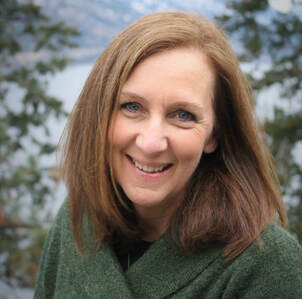
Although I knew of Adrienne Gear’s work I had never had the pleasure of attending a presentation with her. We were all in for a treat. She did not just do one session but two and provided so many resources, insight and next day ideas you walked away eager to implement these things the next day. Session 1: Responsive Writing Instruction and Assessment in the Primary Classroom In this session Adrienne focused on how to build writing instruction practices into all areas of learning. Her presentation focused on providing insight into how to implement initial writing workshops with students, some guided learning and word work with students from Kindergarten to Grade Three. She provided real life examples of work she had done with several schools across British Columbia recently as well as her own classroom experiences as a teacher on the B.C. coast. She also spoke openly about how she has changed over time and adapted to what she realized worked best in implementing a literacy approach that focused on getting students to write, from a young age. Throughout her presentation she shared video and picture examples of what that could look like and you were provided with so many resources that could be used right away. Leaving this session you felt like you could go out and rethink your practice and that someone was there to support this learning. I was so inspired by this talk I immediately went and ordered some of her books online. Which has been well worth every page. Session 2: What’s all the Buzz about the Science of Reading? With all the talk about the Science of Reading it was nice to have someone in the field speak to their understanding of what this means for literacy in Canadian Schools going forward. The biggest message that Adrienne reaffirmed is that this concept of learning is really not new. It has just not been formally recognized and implemented in Canadian schools until now. She made it very clear that she was not an expert but that she was also learning and navigating this process and analyzing the research to learn more herself. In looking at what is out there she agreed that the approach makes sense for the learning of students. It is research based, incorporates phonological and phonemic awareness as well as logical writing patterns for student success. She focused on David Kilpatrick’s work and touched on the successes that have been reported from students who have started to learn in this manner. Programs such as Orton-Gillingham and Heggerty have shown impact although it has only recently started to be used in schools so there is not significant amount of current research. As Adrienne stated this does create an approach that seems to reach all students. She encouraged everyone to do their research and look into items on how to implement the Science of Reading. Articles like Scarborough's Reading Rope explained are a great place to start to build on this journey. Listening to both of Adrienne’s sessions reaffirmed what an incredible educator she is and how honored we were in having her that day. Court Rustemeyer: The Art of Storytelling and Creating Your Own Adventures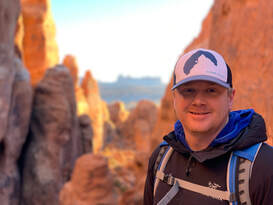
Court rounded out our day with practical ways to bring storytelling to life with outdoor education, learning on the land and a true appreciation for storytelling.
This resource packed journey into ways to get kids active and bridge literacy and physical education was moving. The passion that Court brought to his presentation and his work with Indigenous Elders and learning from the land created a great connection to other important aspects of our curriculum that inspire students learning beyond the four walls of our classrooms. After listening to Court speak his love of building student relationships through outdoor experiences was brought to life for all of us. It truly was a pleasure to have a fellow CBE colleague show how this work has evolved for him with older students but that through adaptation this can be done for students of any age. Thank you Court for sharing your wisdom with us all. |
We are looking forward to all of you attending our next Conference in person at the Pomeroy Kananaskis Mountain Lodge March 16th to 18th, 2023.
